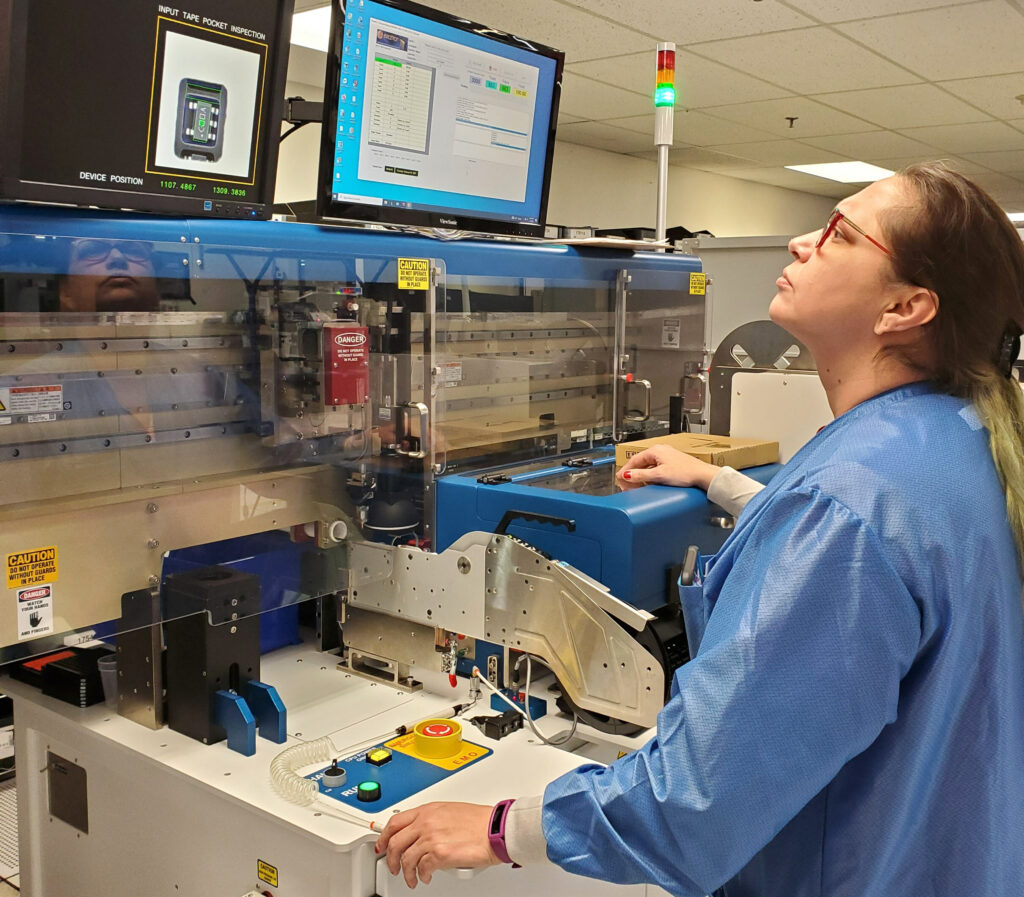Service assurance company Accedian has unveiled new “intent-based” assurance capabilities for its Skylight platform, which it says are the first of its kind and “[represent] the next level of automated assurance.
“Intent-based assurance provides the foundational visibility needed to drive intent-based networking and enable critical insights into network performance,” the company explained in a release, adding that “Intent-based networking has tended to focus on service activation: configuring and provisioning devices based on intent. Intent-based networking, orchestration, end-to-end assurance, and service visibility need to go hand-in-hand.”
“Network complexity has accelerated beyond the manageability of manual intervention. Automation is no longer a luxury, but a necessity. It’s a journey that takes open integration, standardization, and simplification work to get there,” said Dion Joannou, CEO of Accedian.” Intent-based assurance understands how the service should behave, and it can understand when the service is having an issue and inform the orchestration layer. This added intelligence will provide customers with the continuous visibility and feedback loop on service quality that they need.”
The new Skylight capabilities include “direct visibility” into the user experience and service quality, according to Accedian, without having to provision the details of assurance and testing. The company said that its intent-based assurance capability “understands how [a] service should behave” and can also understand when that service is having an issue and “immediately trigger the controller layer for closed-loop optimization or remediation.”
Cisco is adding the intent-based assurance from Accedian to its Crosswork Network Automation portfolio for CSPs.
In other test news:
–Rohde & Schwarz launched an updated solution for network benchmarking that it says helps to reduce complexity and assists operators in getting more out of their collected data. The Benchmarker 3 is R&S’ third-generation benchmarking system and the test company says that it reduces complexity and enables operators to get more intelligence out of their data in a shorter time.

“The entire mobile network ecosystem is becoming more and more dynamic and complex for MNOs. Versatile network technologies up-to 5G, infrastructure and new architecture like Open RAN co-exist, and the ongoing deployment of private networks adds more complexity,” the company said in a release. “Today’s relevant mobile network information and data can be obsolete tomorrow. … It is essential for MNOs to efficiently collect and process data in a very short time to maximize benefits.”
The Benchmarker 3 is lighter, uses less power and has a reduced footprint compared to its predecessor, along with fewer computing components, so configuration and maintenance are simpler, according to the test company. It is modular and backwards-compatible with the components of the Benchmarker II, R&S added, while offering new airflow management for temperature control of devices that may be prone to overheating when handling high 5G data throughput.
Rohde & Schwarz will be showcasing the Benchmarker 3 at Mobile World Congress Barcelona at the end of this month.
-Semiconductor assembly and testing company Integra Technologies was approved this week for an economic incentive package from the state of Kansas that—contingent on receiving funds from the federal CHIPS and Science Act, will support the expansion of Integra’s semiconductor testing facility in Kansas.

Integra, which is headquartered in Wichita and also has operations in Silicon Valley, says it is the largest Outsourced Semiconductor Assembly and Test (OSAT) company in the U.S. and that its expansion will create at least 2,000 jobs and $1.8 billion in capital investment in the Wichita region, with the company planning to build a one million square foot, state-of-the-art headquarters and production facility that will be solar-powered.
-TÜV Rheinland announced a major investment in a testing facility in China, both for photovoltaic materials testing and for electromagnetic compatibility (EMC) testing. The new facility, the Yangtze River Delta Operation Hub, is in Taicang, China (about 50 km from Shanghai), and TÜV Rheinland said that it has invested about 11 million euros in the first construction phase, with another 11 million euros of investment planned for a second phase.
The first phase will enable TÜV Rheinland will offer testing services in state-of-the-art facilities covering more than 12,000 square meters, the company said, including a lab of more than 2,000 square meters for EMC testing and another, 4,000-square-meter lab specifically for EMC testing related to automotive vehicles and parts, including autonomous vehicle systems.
–Pasternack announced a series of new components for T&M applications, including waveguide mixers, detectors and couplers covering frequencies from 26.5 GHz to 110 GHz.

